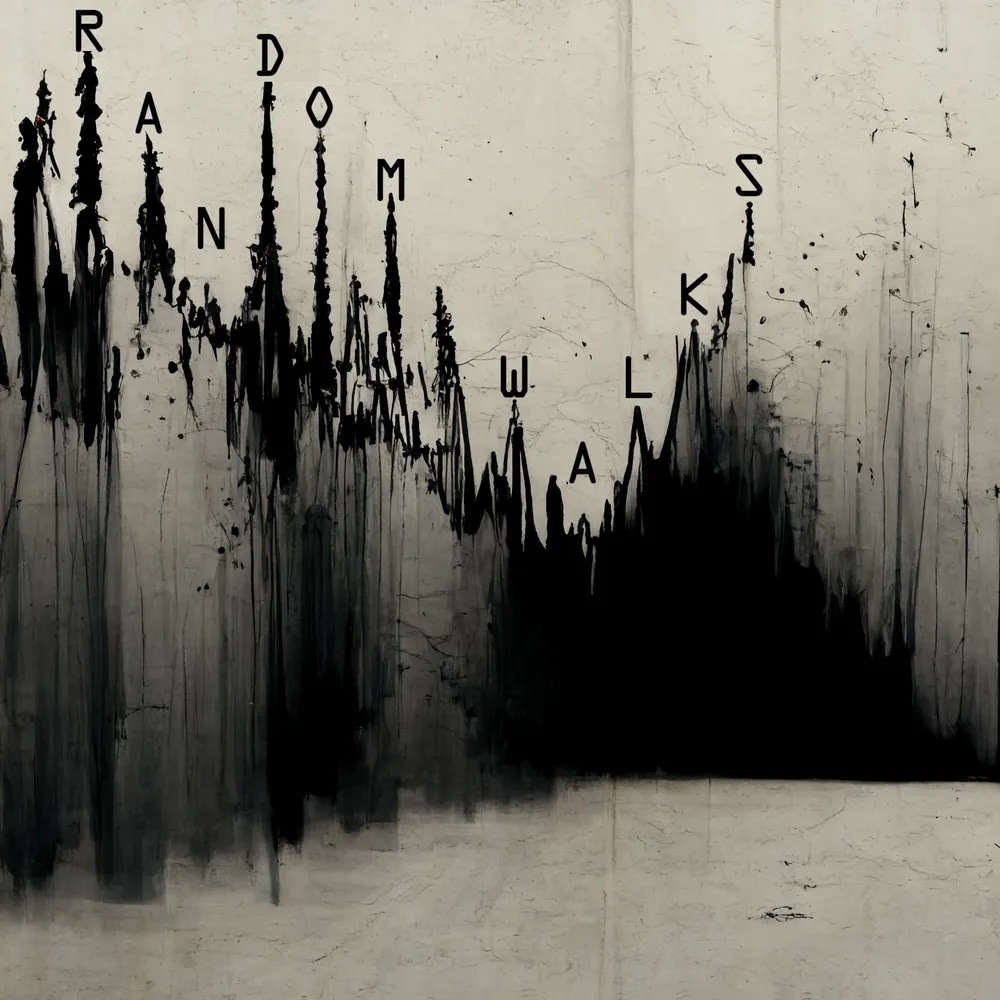Album Review: Milad Mardakheh’s Random Walks – A Complex Interplay of Tradition and Technology

Album Review: Milad Mardakheh’s Random Walks – A Complex Interplay of Tradition and Technology
Written By: Dan Eachus
Introduction
In Random Walks, Milad Khosravi Mardakheh, the Iranian-born, UK-based composer and sound artist, offers an innovative and deeply introspective journey through the convergence of Persian classical music and algorithmic computer music. Released on October 10th, 2023, this album is an exploration of the profound relationship between human creativity and computer-generated randomness, embodying the artist’s personal and cultural struggles, and the unpredictable nature of both art and life.
An Intersection of Worlds
Mardakheh’s work is marked by an intersection of two seemingly disparate worlds: the traditional, modal structures of Persian classical music and the cutting-edge possibilities of algorithmic composition. As a composer with a background in both computer engineering and contemporary classical music, Mardakheh is uniquely positioned to explore these realms. His academic background, which includes an MMus in Composition from the Royal Welsh College of Music and Drama and a PhD from the University of Birmingham, has provided him with a deep understanding of both the technical and artistic aspects of music creation. This duality is reflected throughout Random Walks, where ancient musical traditions meet the randomness of computer algorithms.
The Conceptual Foundation
The title Random Walks is derived from the mathematical concept of Brownian motion, a random process that describes the chaotic movement of particles in a fluid. This concept serves as a metaphor for Mardakheh’s compositional process, where algorithmic randomness and human improvisation collide to create unpredictable and ever-evolving soundscapes. The album is not just a technical experiment but also a deeply personal exploration of themes such as alienation, identity, and the unpredictability of life—especially poignant for Mardakheh as an immigrant in the West and a witness to the socio-political turmoil in Iran.
In his artist statement, Mardakheh describes how randomness represents “unknowing and unfamiliarity,” a state that resonates with his personal experiences of alienation and the complexities of cultural identity. This concept is central to the album’s narrative, as it traverses the unpredictable terrain of random number generators and the emotive depth of Persian classical music.
A Track-by-Track Exploration
The album opens with “Improvisation in Rāst Panjgāh,” a piece that immediately grounds the listener in the rich tradition of Persian classical music. The rāst panjgāh mode, known for its serene and majestic quality, sets the tone for the album’s exploration of tradition. However, even within this traditional framework, Mardakheh introduces elements of unpredictability through his improvisational approach, allowing the music to evolve in real-time, influenced by both his own intuition and the algorithms that guide the composition.
The title track, “Random Walk,” is where the album’s conceptual framework truly comes to life. This piece is a dialogue between Mardakheh and the computer-generated random number algorithms, where the composer’s input is continuously shaped and reshaped by the unpredictable output of the machine. The result is a soundscape that is both chaotic and coherent, a reflection of the randomness that governs much of our lives, yet is navigated through human agency and creativity.
“Capricious” continues this theme, its name hinting at the whimsical and unpredictable nature of the music. The piece oscillates between moments of calm and tension, mirroring the capriciousness of the algorithms that guide it. Here, Mardakheh’s compositional skill shines, as he masterfully balances the randomness with deliberate musical choices, creating a piece that is as engaging as it is unpredictable.
“This dream was a nightmare” delves into darker, more introspective territory. The title suggests a journey into the subconscious, and the music reflects this with its haunting melodies and dissonant harmonies. This piece feels like a descent into chaos, where the lines between reality and nightmare blur, much like the unpredictable nature of the algorithms that drive the composition. Yet, there is a sense of catharsis in the way the music unfolds, as if Mardakheh is confronting his deepest fears through sound.
“AlgoDashti” is a nod to the dashti mode of Persian classical music, known for its melancholic and introspective qualities. Mardakheh’s use of this mode, combined with algorithmic composition, creates a piece that is both deeply emotional and intellectually stimulating. The interplay between the modal traditions of Persian music and the randomness of computer algorithms creates a tension that is both unsettling and beautiful, reflecting the complexities of cultural identity and the immigrant experience.
“Rima for the Rabid” is perhaps the most intense track on the album, with its frenetic pace and dissonant harmonies. The piece feels like a battle between order and chaos, as the algorithms push the music in unpredictable directions, while Mardakheh attempts to rein it in. This track is a testament to the power of improvisation, as it captures the raw energy and emotion of the moment, unfiltered and unrefined.
The album closes with “Improvisation in Šur,” bringing the journey full circle. The šur mode, often associated with longing and nostalgia, provides a fitting end to the album’s exploration of identity, alienation, and the unpredictability of life. Here, Mardakheh returns to the traditional roots of Persian classical music, but with the added depth of his experiences and the unpredictability of the journey he has taken.
Conclusion: A Masterpiece of Modern Composition
Random Walks is a remarkable achievement in modern composition, blending the ancient traditions of Persian classical music with the cutting-edge possibilities of algorithmic composition. Milad Mardakheh’s ability to navigate the complexities of randomness and tradition, chaos and order, human and machine, is nothing short of masterful. The album is a deeply personal exploration of identity, alienation, and the unpredictability of life, reflecting the experiences of an artist who is constantly pushing the boundaries of what music can be.
For those interested in the intersection of technology and tradition, or for anyone looking to explore the depths of modern composition, Random Walks is an essential listen. It is a work that challenges the listener to think deeply about the nature of music, creativity, and the human experience, offering a unique and unforgettable journey through sound.
You can pick up the album here: https://zabtesote.bandcamp.com/album/random-walks






